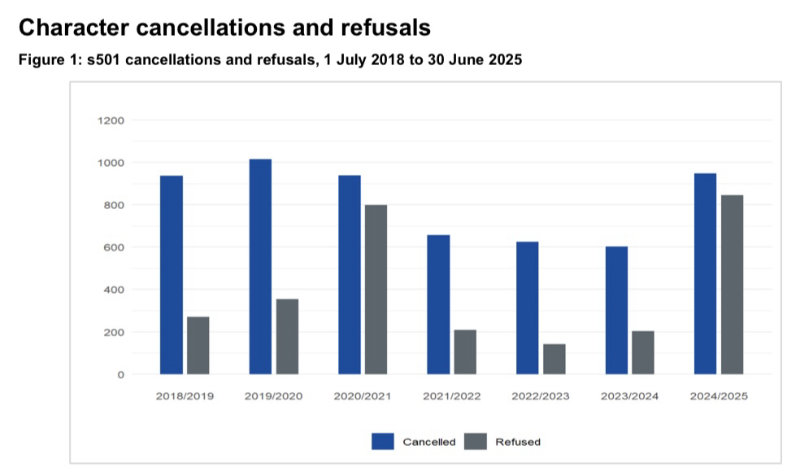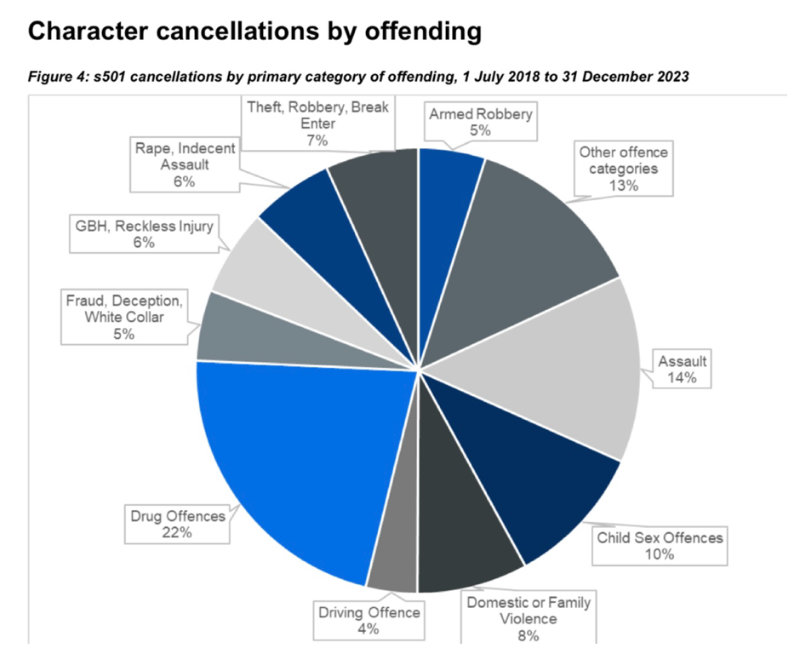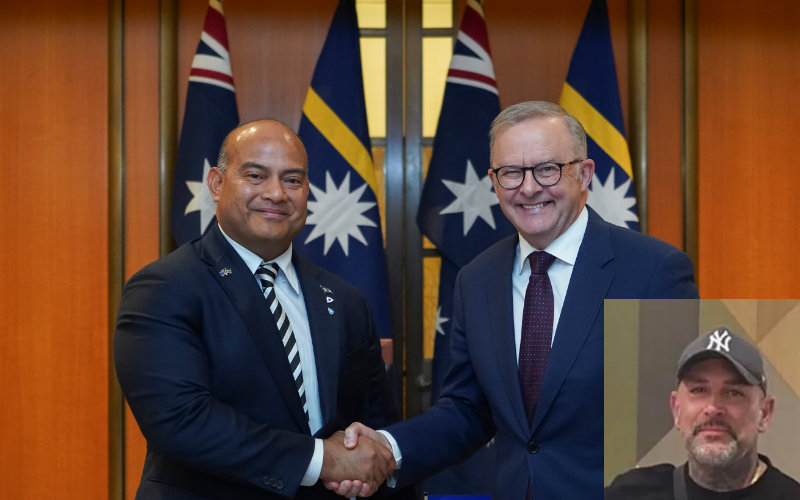With graft and corruption in Australia’s offshore detention regime exposed by whistleblowers, questions need to be raised about whose character is being tested: refugees’ or the government’s? Janet Pelly asks.
The Sydney Morning Herald and 60 Minutes featured two whistleblowers who shared experiences of graft and corruption in Australia’s offshore detention industry. This now includes hundreds of refugees facing 30-year exile in the $2.5 billion Nauru deal.
Former soldier Oisin Donohoe was supposed to work with Safe Hands Security, which has been contracted to provide oversight for the so-called NZYQ cohort. After a bit of due diligence, he found out that the company is part-owned by the Finks International President, Ali Bilal, and staffed by members of the outlaw bikie gang.
He resigned and reported it to the government, but says his concerns have been ignored. He also says that no security clearance was required, and Australian Police were involved in transfer logistics for the deployment. This flies in the face of Home Affairs’ claims that they oversee everything happening in the Nauru program.
Exile to a vanishing shore: human rights, climate and the Nauru ‘solution’
The second whistleblower is Assistant Secretary of Home Affairs, Derek Elias, who oversaw offshore detention contracts from 2019-21. He alleges abuse of taxpayer funds on over-inflated contracts, payments for non-existent services, and even public money spent insuring luxury assets, to the tune of at least $16m.
In response to a similarly damning 2023 investigation, the Home Affairs Department defended its handling of offshore processing contracts, saying it “has a robust contract management framework … which has matured over the past decade”.
Transparency International Australia has joined calls for what it calls “a conveyor belt of corruption allegations” to be referred to the National Anti-Corruption Commission.
The issue has clearly got under some tough political hides because Nauru President, David Adeang, made an unplanned, unpublicised trip to Canberra to meet Home Affairs Minister Tony Burke, only days after the Safe Hands scandal broke.
Visa cancellation changes
To understand the selective obsession with character tests, it’s worth going back to December 2014. Peter Dutton had just taken over from Scott Morrison as Minister for Immigration and Border Protection. He introduced amendments to the Migration Act that supercharged section 501, creating far broader powers to cancel or refuse visas on “character grounds.”
Relevant to the ironically named Safe Hands Group, this included an Association clause. That is, if a visa-holder has a past or present association with a group or organisation suspected of criminal activity, their visa can be cancelled.
In a well-publicised crackdown, 158 bikies ($) were deported from 2015-18.
The Association clause wasn’t the only change. Others included:
- Expanded discretionary powers: The Minister (or delegate) can cancel a visa if they reasonably suspect the person doesn’t pass the character test — even without a conviction.
- Mandatory cancellation powers for non-citizens sentenced to 12 months or more in prison. This can also include several minor convictions cobbled together.
- Reduced appeal rights: Under section 501(3) of the Migration Act 1958 (Cth), the Minister can personally cancel a visa in the national interest, even if the person passes the character test. These decisions do not qualify for merits review.
The change was staggering n its speed. Only 76 visas had been cancelled in FY 2013–14. A year later, it was 580. By FY 2016-17, it was over 1,200 — a rise of 1,500% in 3 years.
Interestingly, cancellations and refusals again skyrocketed after NZYQ and the end of indefinite detention in Australia.

Source: Dept of Home Affairs.
However, these numbers don’t tell the full story. The breakdown of offending is broad, and the outcome of appeals against cancellation (refusals in the graph above), your visa back after cancellation, doesn’t follow the seriousness of the visa breach or crime.

Source: Department of Home Affairs.
Many of the people I know in detention (past and present) find the inconsistency in decision-making (those ‘expanded discretionary powers’) maddening.
One man whose visa was cancelled because of criminal charges (since dismissed) has watched
as a parade of people with serious offences are released,
while he remains ‘administratively detained’ in prison conditions over 10 years later.
Flawed character testing?
This is not an argument for more people to be sent to Nauru. It is white-hot frustration at a system that allows “a conveyor belt of corruption allegations” while
damning refugees to 30-year exile and milking the taxpayer for billions.
With the high degree of secrecy in contracts and subjectivity in decision-making, it’s hard to know what’s real and what’s not. Equally, there are real questions about exactly who is demonstrating bad character and at what scale.
One thing that’s clear is that the men going to Nauru have no right of reply; in September, the Migration Act was further amended to ensure they are denied natural justice. It’s been nick-named the Anti-Fairness Bill.
Essentially, they have been condemned by a “character test” that traps some, frees others and bypasses others altogether. Anti-Fairness indeed.
It would be a joke if the stakes weren’t so high for the human beings involved.
Nauru refugees. Indefinite detention a definite breach of High Court ruling
Janet Pelly is a Melbourne-based refugee and detention rights advocate. She has worked with Human Rights 4 All since 2019.

